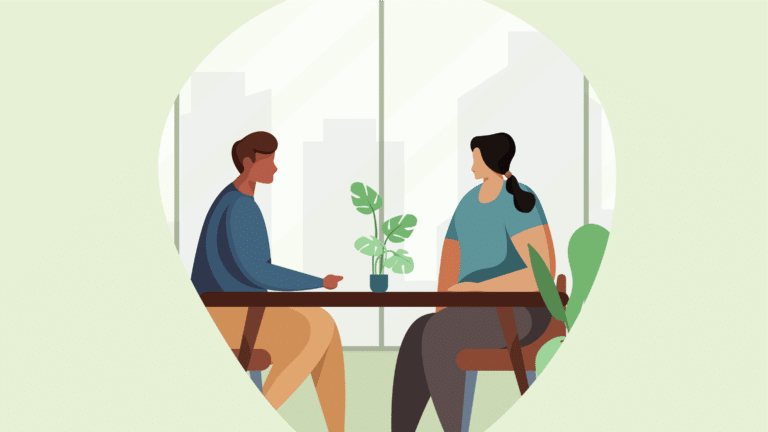5 Tips to Help You Stay Relaxed After Your Vacation

Think of your vacation as a recovery period for your mind and body. By putting most of your responsibilities on hold for a while, you don’t experience as much stress. And since there’s no alarm clock waking you up, long hours at the office, workout classes or other urgent tasks, you’re able to slowly fall back into a natural rhythm of eating, exertion and resting.
You feel more space to unplug – to switch off your phone, for example, and to stop filling your day with scheduled activities. This means you have more time to quietly reflect on the things that have been going on in your life recently.
If you manage to go away during your vacation – even if it’s just heading off to a nearby campsite for a few days – your new surroundings will provide you with fresh perspective and, therefore, make you feel energised. However, dealing with stressors when you return from vacation can make you dread returning to real life.
Let’s look at how to stay relaxed after returning to reality post-vacation, and explore the best tips to keep you in a relaxed mindset.
Ideal Conditions
You may think that the best kind of vacation is one where you do as little as possible: Lie on the beach for a while, grab some food, maybe drink a glass of wine.
But research shows that our brains and our emotional systems function best when – in addition to relaxation – we incorporate activities that require a little more exertion into our vacations.
This balance between relaxation and exercise has a positive effect on the production of serotonin in our brains, which actually increases our sense of happiness. Examples of vacation activities include taking a brisk walk, doing a fun sport or joining a cool class.
Other factors that help you to get the most out of your vacation:
- Getting as much rest as possible and sleeping well.
- Trying new things: Visiting places you’ve never been before and engaging in new activities.
- Being in good company. Spending time with family and friends who make you feel relaxed. Making sure that the people you’re hanging out with share your opinions about what’s relaxing and which activities are fun.
- Allowing yourself to disconnect from your daily life as much as possible. In other words: Cutting back on your phone usage and, if you can, not checking your emails for a while.
- Getting the most out of the build-up and aftermath. Talking about all the things you want to do and places you want to explore, then reminiscing for a long time afterwards.
Things you should avoid because they can make your vacation stressful:
- Not planning things properly, meaning you have to rush around at the last minute trying to find a flight and somewhere to stay.
- Going on vacation with people who want completely different things out of the experience – making it more likely that your own needs will go unfulfilled.
🧘 Want to learn more about dealing with stress? Read our blog: Stress Relief on the Go: Easy Techniques for a Busy Lifestyle
Maintaining a Vacation Mindset
“By the end of our vacations, almost all of us have every intention of maintaining our sense of liberation, relaxation and tranquility for as long as possible.
But, on average, this vacation mindset only lasts for 2 to 4 weeks. Researchers call this the fade out effect, because once you are back home, living your old life and working in the same environment, it only takes a maximum of four weeks before you start feeling the way you used to.
One of the traps we also sometimes fall into is getting back from a vacation and immediately thinking: I’m behind and I need to catch up. This means that we lose our vacation mindset even more quickly and the reserves of energy we’ve built up are soon depleted. You can avoid this by making sure you properly hand over all your assignments before you leave and choose somebody to remain a point of contact while you’re away.
This way, your work won’t pile up. You can also reduce the fade out effect by taking a few evenings or days to completely relax during your first few weeks back at work. This will help you to hold onto to that vacation mindset. It’s still okay to take time to relax and enjoy yourself once your vacation is over. Give yourself permission to do this.”
📚 Additional reading suggestion: How to Embrace Slow Living: Self-Care Tips for the Summer Season
Five Tips for Incorporating the Benefits of a Vacation into Your Daily Life
A good balance between rest and activities, exposure to new experiences, and a lack of commitments and responsibilities demanding your attention through your phone or email. All these ingredients that make vacations so good for you are things you can incorporate into your daily life. Here’s how to do it:
1. Schedule days when you don’t have to do anything
Just because you’ve recently been on vacation, doesn’t mean you need to completely throw yourself back into all of your old routines. Allow yourself to take time to rest during your working week instead of putting it off until your next vacation. Think of it like staying in shape or eating a healthy a diet – you have to keep it up if you want to retain the full benefit.
2. Figure out what makes you feel like you’re on vacation
Maybe it’s a particular breakfast, drinking a glass of wine in the sunshine, twittering birds or the sound of the sea – decide what makes you feel like you’re on vacation and incorporate that into your daily life. You could close your eyes and listen to a podcast of ocean sounds, sit in the sunshine with your favourite drink, etc.
3. Plan your next vacation
This means you’ll have something to look forward to and you can enjoy the sense of anticipation. Also, try to soak up the aftereffects of your last vacation for as long as possible. You could make a photo album, for example, so that you can reminisce every now and then.
4. Practice mindfulness
Mindfulness helps you to relax and gives you that sense of “getting away from it all”. Want to practise mindfulness after your vacation, or at any other time? Try out our Mindfulness meditation body scan.
5. Try to go offline every once in a while
Taking a break from social media and switching off your phone will help you to live in the moment more and unplug from the pressures of everyday life.
How OpenUp can help manage your stress, all year-round
In order to remain relaxed in everyday life, it is important to regularly do something for your mental well-being. On Spaces to OpenUp, you can sign up for group sessions, meditations, and master classes that help you unwind.




